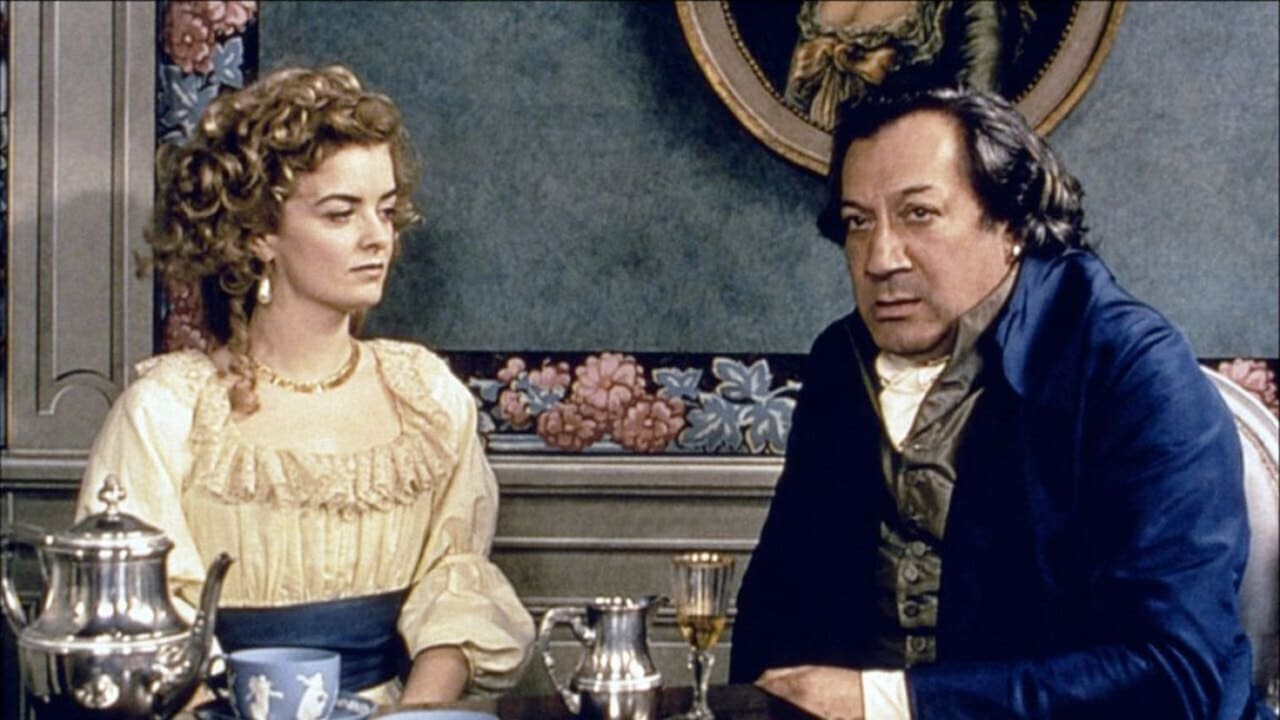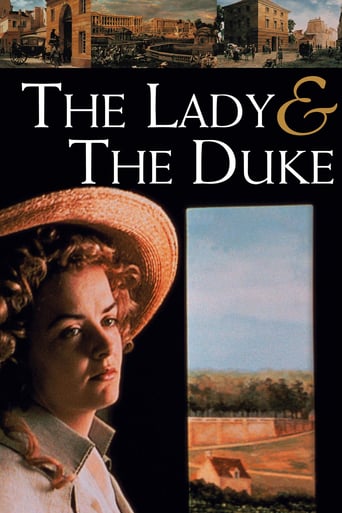

Revolutions always present opportunities for dramatic films since, in fact, most revolutions are in themselves dramatic events. Unfortunately, what this film lacks in drama is compensated for by an overabundance of boredom. One cares not who wins, loses, dies or lives--just end it as soon as possible. This is due in large measure to what seems to me to be a superficial use of background technology. Scenes of Paris and the French countryside have a cardboard quality about them. They might better be done on a bare stage and left that way. One cannot expect the amazing effects of "The House of the Flying Daggers" or "The Golden Compass," but , after all, this is a 2002 digitally mastered production. Characters seem to enter a scene for the sake of entering a scene, so much so that one loses count of the number of times character enter and leave rooms. In my view, this film turns the French Revolution of the 1790s into the "papier-mache" revolution of a "papier colle" world.
... View MoreAcclaimed director Eric Rohmer tries to pull off some revolutionary ideas, but I'm not entirely convinced of a success. Perhaps the most striking deviation from classic film is his use of hyper-saturated digital colours. As other reviewers have pointed out, this is Rohmer's way of creating a living 18th century oil painting. But as the other reviewers also have pointed out, it's not always convincing. Indeed there are a handful of magnificent scenes where he succeeds. For a split second you're not sure if the camera is focused on a fancy Rococo painting...until suddenly the characters begin to move and talk. But the problem arises once the gimmick wears off, and those same vivid images begin to look like cheap CGI trickery, common in low budget made-for-TV films.The next biggest flaw--an bizarre oversight which I can't fathom--is the lack of music except at the very beginning and the very end. If this movie is indeed an aristocrat's view of late 18th century France, complete with impeccable costumes and fancy furniture, shouldn't there be, at the very least, an occasional Mozart, Rousseau or Bréval sonata in the soundtrack to help us settle into the period? Instead the scenes are awkwardly silent. I never realized how distracting it can be to NOT have music in a film!Last topic: character development. We get a nice performance from Lucy Russell as the "Englishwoman" (she did an excellent job of creating a Parisian accent tainted with Scottish roots, and when she "dumbs it down" in the scenes where she's pretending to be a tourist, it's very impressively done). But unfortunately I feel like hers was the only character that had any soul. Jean-Claude Dreyfus (the Duke), who was riveting in DELICATESSEN as the heartless villain, and equally memorable in CITY OF LOST CHILDREN as the big ole softy, never seemed to have a clear character in this film. This, I believe, is the fault of the director. He should have given Dreyfus a few closeups to allow us to see that very expressive face of his. Instead, I recall seeing only full body shots and profiles where we're not sure how genuine he is. The result is that you never trust the Duke at his words; you never know if he's a "good guy" or a "bad guy". It also doesn't help that the Lady is constantly flip-flopping her affections/hatred toward him. The resulting character confusion leads to us, the audience, becoming apathetic and distanced from the Duke.The story itself is very interesting, but I won't get into that because I don't want to ruin anything if you decide to see the film. Overall... I really don't know what to think of this. It held my interest for two hours but was never quite satisfying. Watch it on a rainy day and judge for yourself.
... View MoreAnyone who finds this film boring is a hopeless bonehead who should stick to car chase movies and romantic comedies. This film is riveting and doesn't have a boring moment. Why? Because it is comprised largely of intelligent dialogue between real people in a moment of crisis and details their efforts to survive that crisis. I repeat--intelligent dialogue! That is what characterizes nearly all of Rohmer's films, and that is why a lot of people don't like them. They prefer action. Fine, let them spend the rest of their lives watching action films, while those of us with taste and discrimination will continue to seek out films like this.Rohmer has always been accused of being "talky." Well, he is, but to me that's a compliment, not a criticism. Shakespeare was talky, too. Is there a talkier play than "Hamlet?" Whenever the subject, or theme, of a work of art consists of ideas and conflicts over values, there must of necessity be a discussion of these ideas and values, an that is largely what this film is all about. Aristocracy and noble birth vs. egalitarianism; loyalty to old friends that is put to the ultimate test when that friend takes what we believe to be a wrong path; the value of human life and the responsibility to help save that life, even if the person possessing that life is not so nice, or even despicable. (Anyone ever hear of Dostoyevsky, or "Crime and Punishment?") These are what this film is all about.The two leads in this film are impeccable, as if they were born to play these roles. Lucy Russell, who is English and speaks French as her second language, is especially brilliant. Do yourself a favor and see this riveting film. It may be the last film by this screen Master.
... View MoreWhenever a great master is in his final years, the public tends to forgive his missteps. We accept that creative wells eventually run dry, and we content ourselves with whatever further work he creates, hoping only for a glimpse of a once great talent, before it is gone forever.Even that is asking too much of this film. I always enjoy Rohmer films, because they are, at worst, intelligent commentaries on the human condition. Even his lesser works, such as the Four Seasons films, are emotionally insightful, so even if we've seen it many times by now, it's at least pleasant in a familiar, anodyne way. In the case of -Lady and the Duke-, any such emotional insight was completely buried under Lucy Russell's insufferably whiny performance. Russell's Lady is not a strong, independent woman; she is a petulant, spoiled idiot. Her character is wholly unsympathetic, and I had difficulty caring about any of her moral concerns. In fact, I found her so irritating that I found myself wishing for her beheading. Probably not an emotion Rohmer was going for.And I have no idea what Rohmer was going for with those digital effects. They are not wondrous and pretty. They are completely unconvincing, and just plain distracting. At their best, the effects look cheap; at their worst, they look like actors standing in front of a painting. A bad, faux-Impressionist painting. In any scene involving these effects, my mind was immediately pulled away from the film to thoughts of computers and blue screens. Again, probably not what Rohmer was going for.It seems almost wrong to criticize Rohmer at this stage in his life, and perhaps that's why so few film critics criticized this film. He's sort of like a great ballplayer in the final year of his career: even though he doesn't hit 'em like he used to, everyone still cheers when he steps up to the plate. In the case of this film, however, he swung, missed completely, and struck out.
... View More